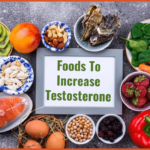Adopting a plant-based diet can bring numerous health benefits, along with positive impacts on the environment and animal welfare. Whether you choose to go entirely plant-based or simply incorporate more plant-based meals into your diet, you can reap a variety of rewards. Here are some of the key benefits of a plant-based diet:
1. Improved Heart Health
A plant-based diet is rich in fruits, vegetables, whole grains, legumes, nuts, and seeds, which are high in fiber, antioxidants, and healthy fats. These foods help reduce the risk of heart disease by:
- Lowering Cholesterol Levels: Plant-based foods contain little to no cholesterol and are high in soluble fiber, which helps reduce LDL (bad) cholesterol.
- Reducing Blood Pressure: The high potassium content in many plant-based foods helps regulate blood pressure.
- Decreasing Inflammation: Antioxidants found in fruits and vegetables help combat inflammation, a risk factor for heart disease.
2. Weight Management
Plant-based diets are typically lower in calories and higher in fiber than diets rich in animal products. This can lead to:
- Lower Caloric Intake: Plant-based foods are often less calorie-dense, allowing for larger portion sizes without consuming excess calories.
- Increased Satiety: High-fiber foods help you feel full longer, reducing the likelihood of overeating.
- Weight Loss: Many people experience weight loss when they switch to a plant-based diet, which can help reduce the risk of obesity-related conditions.
3. Reduced Risk of Chronic Diseases
A diet rich in plant-based foods can lower the risk of several chronic diseases, including:
- Type 2 Diabetes: High fiber intake helps regulate blood sugar levels, and plant-based diets have been shown to improve insulin sensitivity.
- Certain Cancers: Consuming a variety of fruits and vegetables provides phytochemicals and antioxidants that help protect against cancer.
- Digestive Disorders: The high fiber content in plant-based diets promotes healthy digestion and can help prevent conditions like diverticulitis and constipation.
4. Better Digestive Health
Plant-based diets are abundant in fiber, which is essential for maintaining a healthy digestive system. Benefits include:
- Regular Bowel Movements: High fiber intake helps prevent constipation and promotes regular bowel movements.
- Gut Health: A diet rich in fiber supports a healthy gut microbiome, which is linked to better overall health.
- Reduced Risk of Digestive Disorders: High fiber intake can help prevent and manage conditions like irritable bowel syndrome (IBS) and diverticulosis.
5. Enhanced Nutrient Intake
Plant-based diets encourage the consumption of a wide variety of nutrient-dense foods, leading to:
- Increased Vitamins and Minerals: Fruits, vegetables, legumes, and whole grains are rich in essential nutrients like vitamins C, E, and A, as well as minerals like potassium and magnesium.
- Better Antioxidant Levels: Plant-based foods are high in antioxidants, which help protect the body from oxidative stress and inflammation.
- Improved Overall Nutrition: By focusing on whole, unprocessed foods, a plant-based diet can help you avoid the excess sugars, fats, and sodium often found in processed and fast foods.
6. Environmental Benefits
Choosing a plant-based diet can have a positive impact on the environment by:
- Reducing Greenhouse Gas Emissions: Plant-based foods generally have a lower carbon footprint compared to animal products.
- Conserving Water: Plant-based diets require less water for food production than diets high in animal products.
- Preserving Land: Growing plants for food uses less land than raising animals for meat, which helps preserve natural habitats and biodiversity.
7. Ethical Considerations
Adopting a plant-based diet aligns with ethical concerns regarding animal welfare. Benefits include:
- Reducing Animal Suffering: A plant-based diet minimizes the demand for meat, dairy, and other animal products, thereby reducing the number of animals raised and slaughtered for food.
- Promoting Sustainable Farming Practices: Plant-based diets support agricultural practices that are often more sustainable and less harmful to animals and the environment.
Tips for Transitioning to a Plant-Based Diet
- Start Slow: Begin by incorporating more plant-based meals into your diet gradually. Meatless Mondays or plant-based breakfasts are a good start.
- Educate Yourself: Learn about plant-based sources of protein, iron, calcium, and other essential nutrients to ensure a balanced diet.
- Experiment with Recipes: Try new recipes and cuisines to keep your meals exciting and varied.
- Plan Your Meals: Plan your meals and snacks ahead of time to ensure you have all the necessary ingredients and avoid last-minute unhealthy choices.
- Stay Mindful of Nutrient Intake: Ensure you get enough essential nutrients, like vitamin B12, vitamin D, and omega-3 fatty acids, which may require supplements or fortified foods.
Conclusion
A plant-based diet offers a multitude of health benefits, from improved heart health and weight management to a reduced risk of chronic diseases. Additionally, it supports better digestive health, enhances nutrient intake, benefits the environment, and aligns with ethical considerations regarding animal welfare. By making mindful choices and gradually incorporating more plant-based foods into your diet, you can enjoy these benefits and contribute to a healthier planet.











